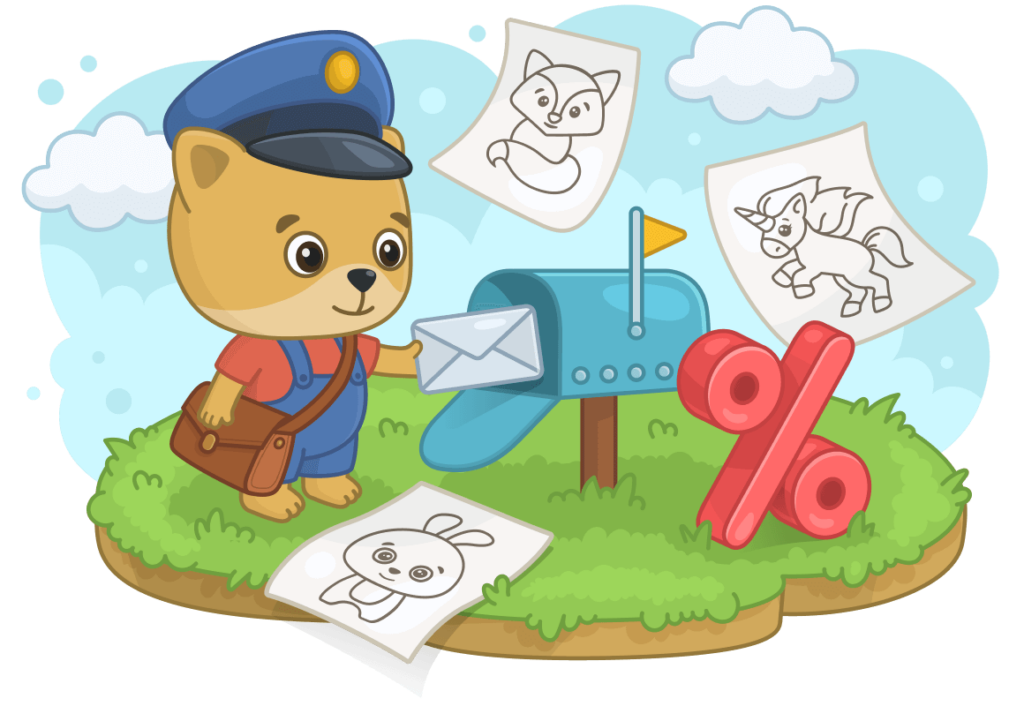As people spend more time with children, they realize that play, especially pretend games is what most kids enjoy doing all day.
Simply put, pretend play is role play. It is when your little ones’ act out different characters, perform imaginative tasks and plots.
Examples of these imaginative plays are saving the princess, dressing up as pirates or dragons, teatime with dolls, and camping under the living room stars.
Research shows that these imaginative plays are crucial for developing your little ones’ language and social skills.
But exactly how important and necessary is pretend play to young children? As parents, what are your responsibilities when it comes to role play?
The Importance of Pretend Play in Children
When kids pretend, they are part of the royal family or secret agents, it seems like they are engaging in simple childlike games.
The use of their imagination during this kind of play is vital in your children’s development of social, economic, and cognitive skills.
Here are the various ways pretend play is beneficial for children.
- It allows young children to express their positive and negative feelings freely and experience the outcome of multiple choices in a controlled environment.
- The development of imagination during childhood makes adults creative in many of their daily life tasks. Adults require their imagination to solve problems, work effectively, enjoy a book or movie, think creatively, and several others.
- Pretend play improves concentration in kids and increases their ability to develop vital skills through an area of interest that fosters academic success.
- Engaging in pretend play is a safe way your child can deal with their anxiety or stress as it helps the child feel more secure and reassured.
- Role-play with their peers or parents is how children learn to socially bond, express themselves, and balance their emotions.
Tips and Ideas on Pretend Play
The power of children’s imaginations is a beautiful thing to behold.
All they need to have fun is very minimum; time, blankets, space, and with your encouragement, they can be anything and go anywhere, just by playing pretend.
Without even putting much thought into it, children can create adventures and naturally make up whole worlds and dialogs.
With the tips and ideas below, your child is likely to spend the entire day occupied with pretend play.
- There is nothing wrong if your child decides to play alone, with friends, or with a parent— both are valuable and important. When children play alone, it improves their imagination as they can create their games. However, playing with their peers or parents enables them to work on their social and emotional skills through their imaginations. Children playing solo with peers and parents are both essential and valuable.
- When you participate in role-playing with kids, try not to guide them and always allow them to take the lead. If they require your help or ideas, suggest prompts and encourage them to think creatively.
- Young children do not need expensive games. With cardboard, they can create different fun ideas their imaginations can think of. Ranging from a rocket ship to a vehicle and even a pirate boat, the adventures and excitement from cardboard is endless.
- Playing dress up and having a pretend tea party with your little ones is an excellent idea. Who knew giving your child a box of simple accessories like wooden toys, plastic tiaras, or Halloween costumes improves creativity. Using their imaginations, kids can create adventurous stories about who they are for the pretend scenarios.
- Another thing school children love to do is to play chef and create special treats in play kitchens, and then serve customers. Stuffed animals or parents are often used by kids as customers when serving dishes from the pretend kitchen. The best part of play kitchens is that children become interested in cooking and minor tasks.

Ways Parents Can Encourage Pretend Play
If your little one does not understand the concept of pretend play yet, you might need to participate and play like a child with them.
Following these simple ways below will encourage your kids to have fun, and you are sure to bond with them in the process.
1. Observe Their Interests
Do not overwhelm your child with too many pretend toys or activities at once. Start with a few essential toys you think they would enjoy and observe what catches their interest.
If a child’s interest is to play with toy cars, you could introduce a familiar theme by having them play a mechanic.
If they are interested in a baby piano, it helps if you play with the toy.
Your child will be motivated to play when you follow their lead and give them games they genuinely enjoy.
2. Imitate Your Child’s Actions
Imitate their pretend actions will likely encourage your child to perform more pretend actions!
There is no need to introduce several pretend ideas if their actions say otherwise.
Your interest is vital to their self-confidence and acceptance of the concept of pretend play.
3. Take Turns when Playing
It is easy for other people to take over the play to show the uninterested child how to play or enjoy role-playing.
Hence, be sure that all the game participants pause and wait for everyone to get carried along. In this way, your child is encouraged to say or do something during the game.
Conclusion
There are so many ideas and ways your child can enjoy every moment of pretend play.
From cosplay to peekaboo, role-play is the perfect way to introduce your little ones to new vocabulary like “princess”, “sword”, “pirate”, or “fairy”.
When you encourage play to pretend and let your child’s imagination lead, they will likely never run out of fun ideas to do or talk about with their peers.
Moreover, most pretend play scenarios reflect children’s lives and experiences.
Hence, parents participating will enable them to know what their child picks up during social interactions and what they observe from people’s relationships.



